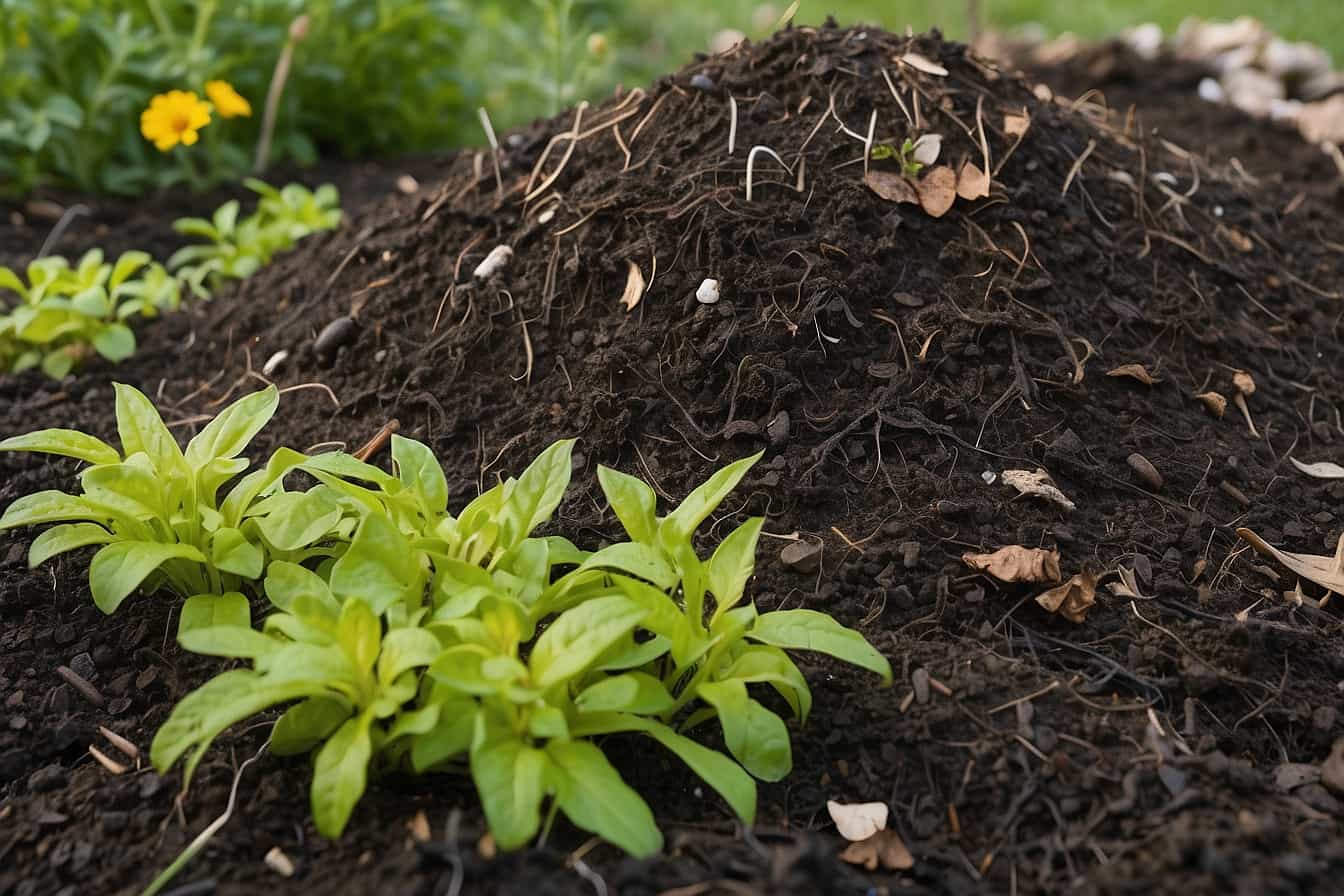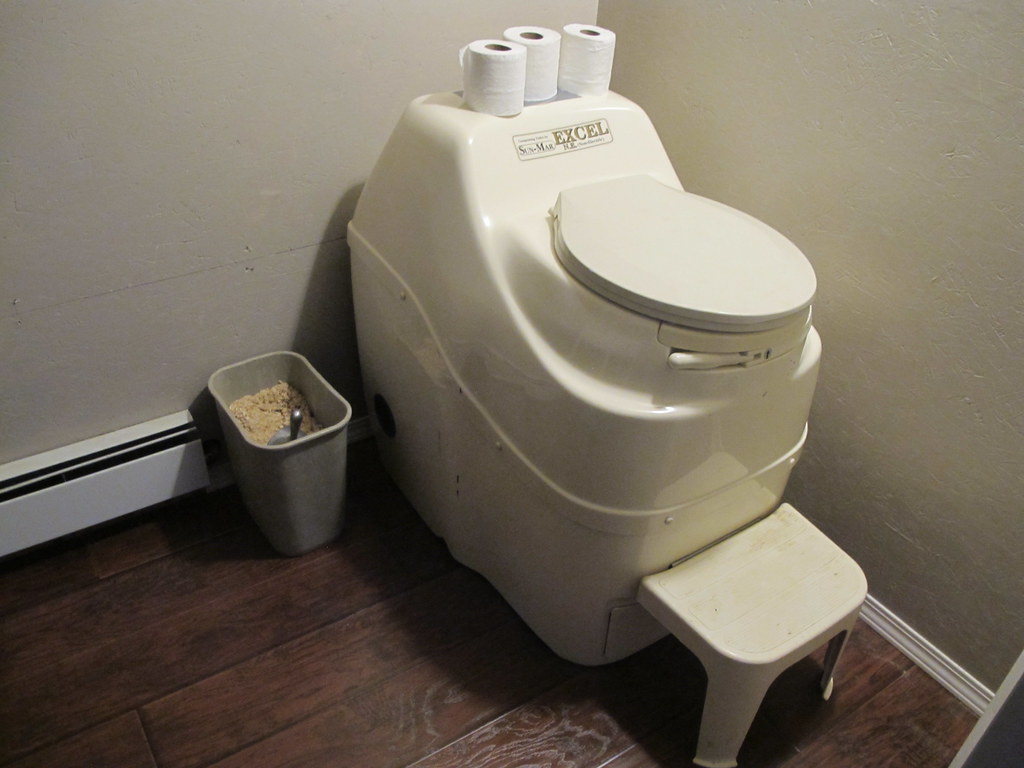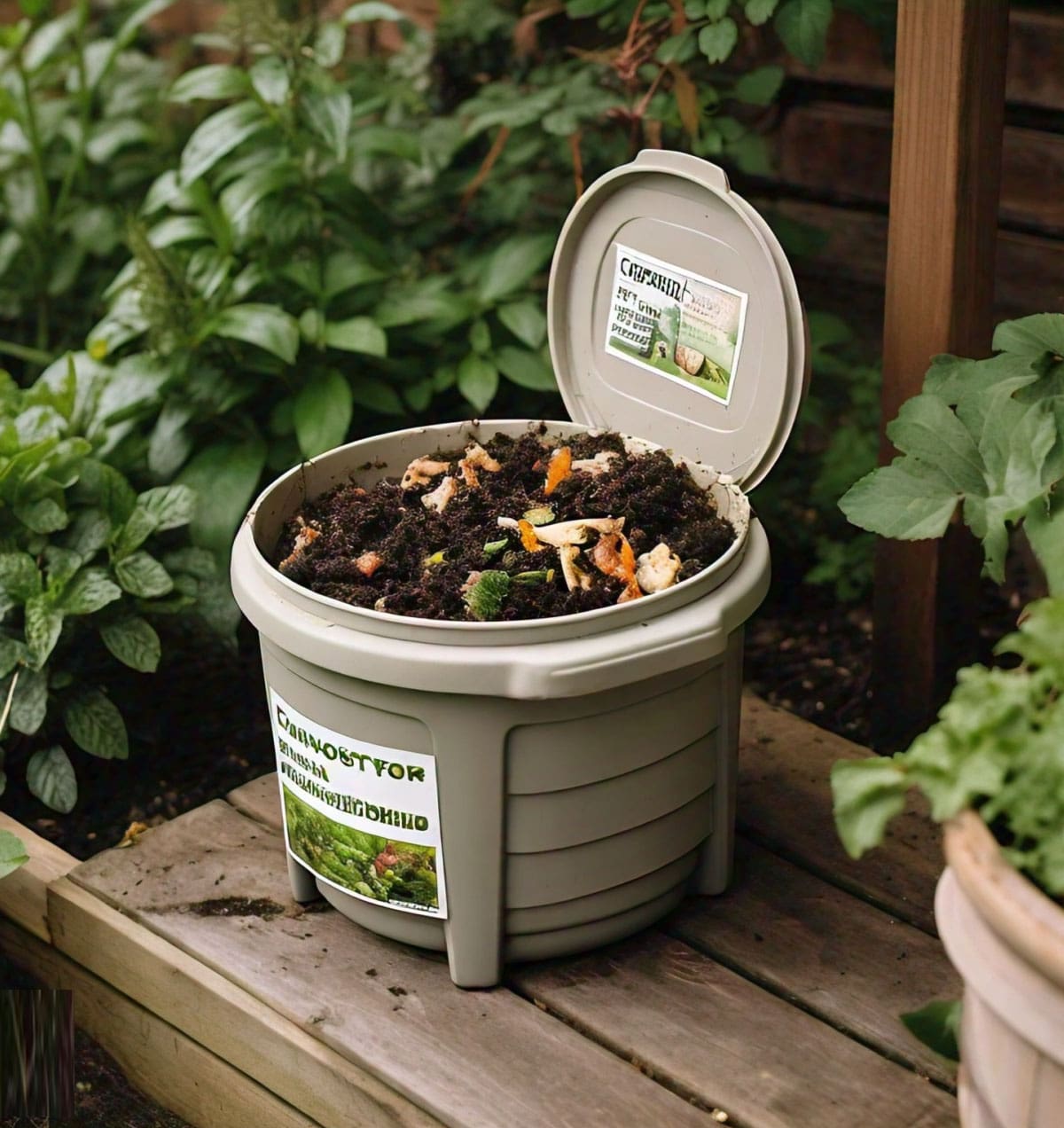Introduction:
In order to find eco-friendly ways to do things, it’s become interesting to use trash from both land and sea sources. Not only does composting organic waste from land and sea make the soil more fertile and boost food yields, it also keeps aquatic environments healthy and boosts their yields. This article mainly talks about how land and sea compost can be used and gained in aquaculture and farming, with a focus on how it makes the world stronger and more long-lasting.
Different Kinds of Land and Sea Waste:
Compost for the soil
when you do yard work there you gather the Grass clippings, twigs, leaves and other related natural things from yard trashes, these are used for making compost. The natural cooking wastes like eggshells, fruit and vegetable or other food scraps and coffee grounds are also used for compost making. Sometimes, the cow, horse, chicken and goat dungs are used to make livestock manure compost. It is sometimes mixed with other materials like straw or sawdust.
Compost from the Sea
Different kinds of seaweed that are found near the shore are used to make seaweed compost. It has many chemicals, minerals, and minor elements that help plants grow.
Fish garbage compost is made from fish bones, offal, and other things that are left over after cooking fish. It has biological matter and nutrients that are good for you.

Land and Sea compost
Why land and sea compost is good:
Better soil fertility
The land and sea compost are source of nitrogen, phosphorus, calcium, potassium and magnesium, which are all essential nutrients for soil. This makes plants grow better and makes more food. Compost helps soil for better water retention, increase the amount of aggregates and holes. Roots and microbes can grow and work better in this dirt.
Adding Organic Matter:
Compost is best source of organic matter for soil. It adds organic matter to the soil, these organic matters are fed bacteria in the soil and in return the bacteria helps the formation of humus, that makes the soil more fertile and provides better water retention and full of nutrients for plants.
In the process of composting the biological waste turn back into soil having essential nutrients. It can be done on land or at sea. This lowers the need for man-made fertilizers as well as lowers the amount of nutrients that run off and hurt the environment.
Disease Control
Compost contains the good bacteria that fights and kills harmful pathogens in the soil. The number of diseases that spread through the dirt goes down, and plant health gets better.
During the composting the organic waste helps to store carbon in the soil. It also reduces the greenhouse gas emissions by fighting climatic changes and improves the soil’s abilitiy to retain the carbon.
Broadening the variety of life in the soil
Compost provides place to live and food to eat different types of soil organisms, like earthworms, fungi, bacteria, and arthropods. This keeps the ecosystem healthy and helps it work well.
Better Water Quality
Using sea compost in aquaculture makes the water quality better by helping good bacteria grow. With the help of these bacteria organic pollution are broken down and lower the amount of nutrients in the water that makes water pollution and eutrophication less likely to happen.
Permanent Agriculture and Aquaculture
Composting on land and in the water helps make farming systems that value being able to last a long time, using resources wisely, and being good to the environment. This keeps future families’ food safe and their way of life safe.

Land and Sea compost
The important point of Land and Sea compost:
There are some compost such as wood ash or seaweed that change the pH level of the soil making the soil more acidic or basic depending on the crops or soil types.
Controlling Weeds
The compost when it is applied to the soil as mulching stops the growth of weeds by blocking the sun and smothering the seeds of weed before sprouting and take root in the soil.
Drought Resistance
The compost having the organic matter helps the soil to hold more water and make the earth stronger. It helps the roots to take water easily to survive in drought.
Heavy Metals Can Be Stuck
The heavy metals can bind with soil that make them less mobile and unavailable to plants. This makes it less likely that heavy metals will get into farming goods.
Better Taste and Nutrition
The plants have better test, texture and nutrition when their soil is amended with compost. This is just because these plants take more nutrients.
Putting carbon into the soil
During the composting the organic waste help the carbon to be returned into the stable forms of soil. The climate change process is slowed down by this for a long time.
To make bio-fertiliser
By using the compost tea, that is liquid extract of the waste to add beneficial microorganisms which helps the plants to grow fix nitrogen in the soil and move nutrients around the plants.
Disease Resistance
Compost have good bacteria and some chemicals that help the plants fight off disease. You don’t have to use as many chemical weapons because they are less likely to get sick or be harmed by bugs.
Economic Benefits
Businesses and cities can get rid of trash for less money when they compost organic waste. Farmers can also get organic fertiliser and soil amendments for a low price, which helps farms make more money and last longer.
Cultural and Social Effects
Composting helps people learn more about the environment and get active in their community by getting individuals, schools, businesses, and other groups to work on projects that cut down on waste, safeguard resources, and support farming that can last for a long time.
Compliance with regulations
Composting organic waste helps communities meet the goals set by local, state, and national governments for protecting the environment, managing waste, and keeping trash out of dumps.
It can help you with the following:
Land and sea compost is an organic material that is traditionally made from animal and plant waste. It is a good way to improve the soil. Animal waste, food scraps, and yard trimmings can all be turned into compost. This helps break down nutrients into forms that plants can easily use. Adding important nutrients like nitrogen, phosphorus, and potassium to soil through land waste makes it stronger, better at holding water, and more active with microbes. Compost for land can also be used as a natural way to keep the soil from washing away and to promote biodiversity in agricultural areas.
A secret gem is seaweed compost
People have become more interested in sea compost as a long-term way to deal with ocean organic waste over the last few years. The main things that make up sea compost are seaweed, fish waste, and other things that grow in the ocean. It has a unique mix of nutrients that work well on land and in water. Seaweed are added to compost as it has a lot of good trace minerals, good bugs and hormones that help in growing the plants. The trash from the ocean turns into nutrient-rich compost is made by the sea composting that not only reduces pollution in the ocean, but it also makes compost that is used to improve soil quality and help plants grow.
How Land and Sea Compost used in Farming?
Land and sea compost can be used in farming in many ways, such as to feed crops, keep diseases at bay, and make the soil healthier. Land and sea compost change the structure of farmland soils so they hold water better and move nutrients around more quickly. This makes crops healthy and more productive. In the same way, using sea compost gives good microbes and nutrients from the ocean to the soil. Which helps plants grow and handle stresses from their surroundings better. Compost tea that is in liquid form which is put into the soil or sprayed onto the plants to fight against any type of disease and also stop the soil-borne pathogens from spreading. This means that fertilisers and chemicals made by people are not needed.
Adding people to aquaculture
Land and sea compost can be used to improve the water quality in aquaculture, which will help the fish stay healthy and the farms make more money. To help good bacteria grow, farmers can reuse organic waste from fishing and mix it with compost made from seaweed. These bacteria break down the organic pollutants of the water and makes it less polluted. Additions of composted seaweed for fish and shellfish’s diet, not only gives them more nutrients but also boosts their immune system and health. It make less requirements of the medicines and chemical additives.
Conclusion:
Land and sea compost is made from trash that is an environmentally friendly and resource-friendly way to get rid of organic waste and grow plants. The farmers and aqua-farmers play key role in the soil fertility, they increase the food and fish production and protect the environment by utilising the compost that comes from both land and sea sources. Composting on land and in the sea make farmland and aquaculture more suitable, resilient and long-lasting in the future.




